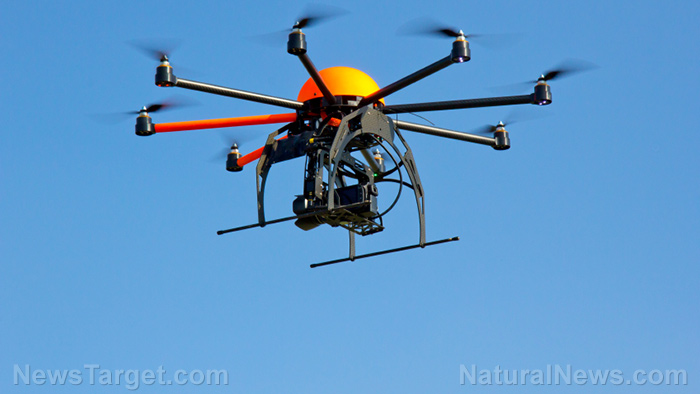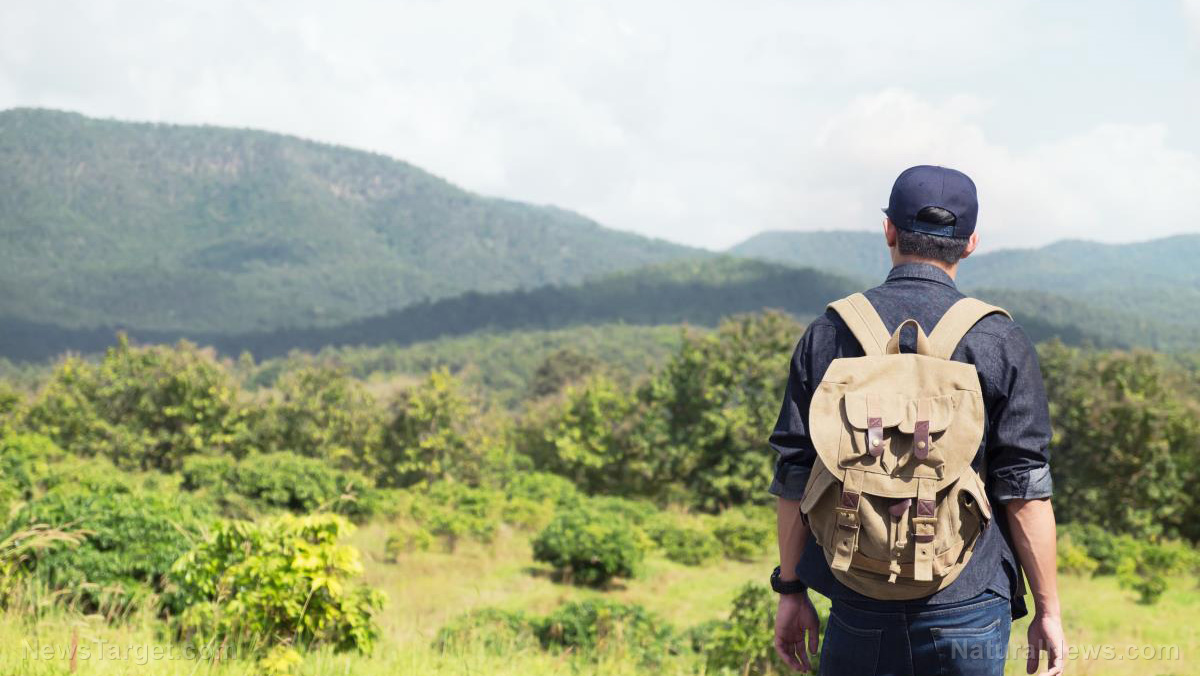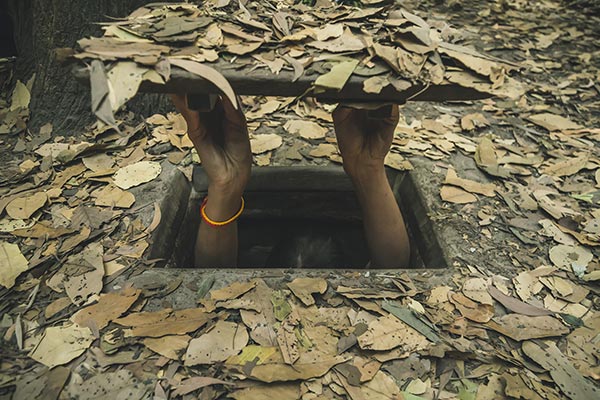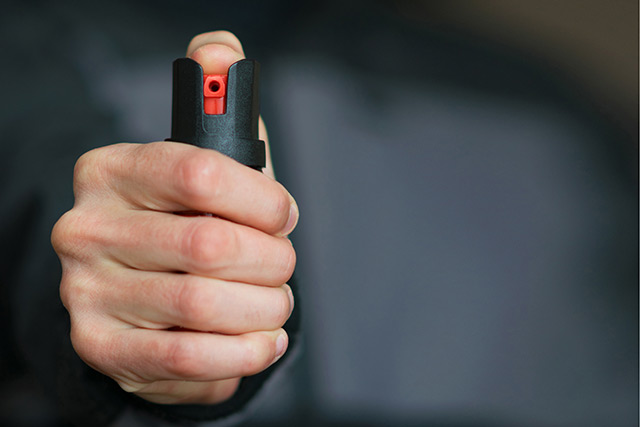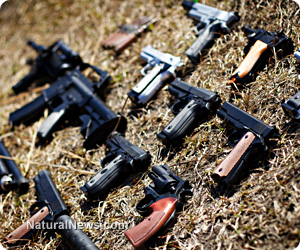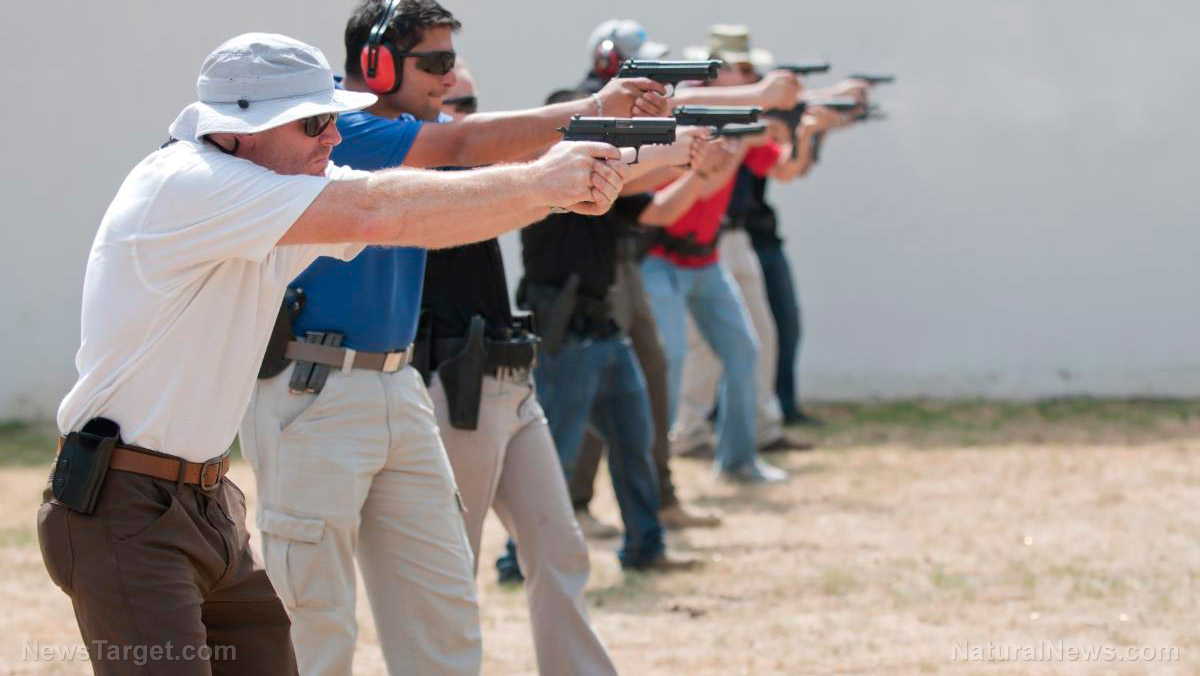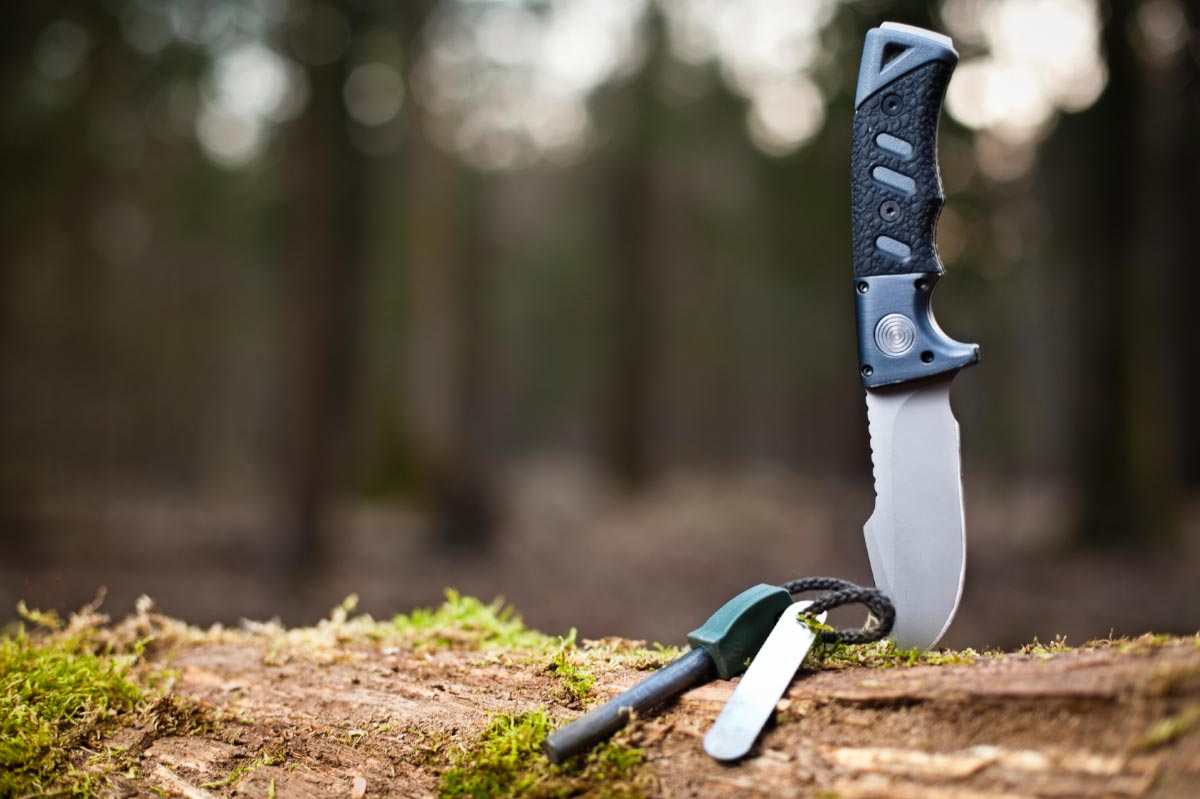Self-defense 101: Can point shooting in close combat save your life?
11/03/2019 / By Edsel Cook
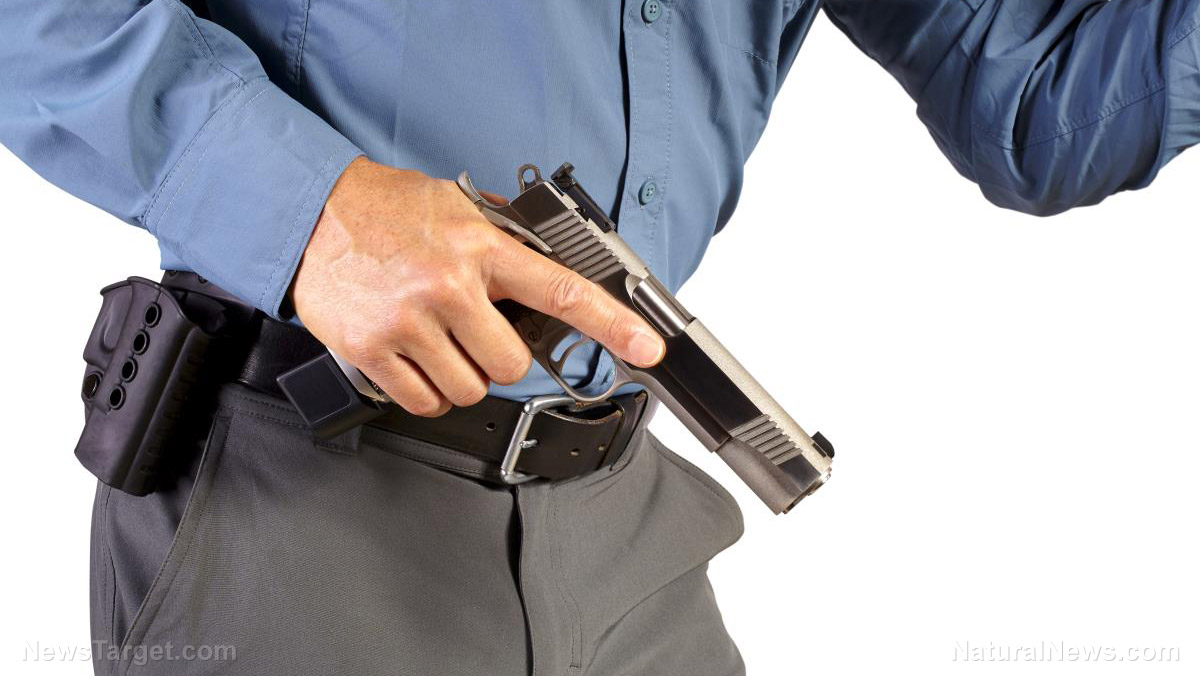
Point shooting is a vital part of self-defense shooting training. Mastering the shooting skill may mean the difference between life and death when SHTF.
In close-quarters battle, the combatants are separated by feet instead of yards. The attacker and defender may even be fighting hand-to-hand.
Close-quarters battle is nothing like “combat shooting” matches. The latter takes place in large areas, participants use aimed fire, and the scenario is not realistic. In short, combat shooting is practically a sport and will not help self-defense shooters train for real combat.
In real life, most firefights with handguns take place between criminals and either civilians or police. The ranges never exceed 21 feet, and the combat often happens within distances of less than 10 feet.
When a person encounters a sudden and stressful situation that forces him to draw his gun and fire it, he needs an approach that feels as natural to him as breathing. To that end, he will benefit the most from taking up the point shooting system.
The point shooting system has proven itself in self-defense and survival situations that take place in the real world against armed assailants. It is one of the best approaches to self-defense shooting. (Related: The one thing that nearly every mass shooting has in common… and it isn’t guns.)
The advantages of point shooting over aimed firing
The gun sights of a handgun allow their user to engage a target at a distance. They are useful during aimed firing, but the shooter needs to be able to see them in the first place.
So, using sights requires either enough ambient light or customization like tritium sights that slightly glow in the dark.
Further, aimed firing is only viable for very few situations in real-life combat. More than 95 percent of self-defense scenarios involve short ranges, poor lighting, and a need to respond rapidly to the attacker.
While aimed firing has its advantages, self-defense shooters will benefit from using point shooting since the latter system will work in almost all situations.
Self-defense practitioner David Andrew Brown noted that the point shooting system didn’t draw much interest since it is unsuited for competitions. Westerners like to compete, so they aren’t interested in a shooting system that isn’t suitable for sporting events.
Again, sports like “combat shooting” do not provide skills that will see use in real-life scenarios. It does not prepare the mind for real combat. Whereas, the point shooting system provides those critical survival skills that may save the life of its practitioner.
Any handgun works for point shooting
The point shooting system is compatible with any handgun. It will work with both semiautomatic and automatic guns, and it doesn’t automatically favor the latter type.
Handguns with lighter calibers offer some advantages in point shooting. Guns chambered for the .22, 9 mm, 3.80 ACP, the .38 Special, and similar rounds usually weigh less than the larger firearms.
Firing a light handgun with one hand using the point shooting method is more manageable than doing the same with a larger caliber.
However, with practice, most people may use one-hand firing techniques with revolvers and pistols around the size of the Colt Auto.
Additionally, using both hands for point firing is always an option. Again, don’t bother to use the sights. Concentrate on controlling the recoil to keep the gun stable and pointed at the target.
Remember that the handgun is a weapon for close-quarters battle. Designed and intended for self-defense at close range, it performs best up close.
In summary, people who want to protect themselves from attackers in real-life scenarios will benefit more from taking up the point shooting approach. Train to defend against the likely scenario instead of the rare happenstance.
Read more news articles on self-defense at Selfdefense.news.
Sources include:
Tagged Under: bug out, combat shooting, firearms training, Gear, guns, handguns, off grid, pistols, point shooting, preparedness, prepper, prepping, self-defense, self-defense shooting, shooting, shooting skills, SHTF, survival, survival skills
RECENT NEWS & ARTICLES
COPYRIGHT © 2017 GEAR.NEWS
All content posted on this site is protected under Free Speech. Gear.news is not responsible for content written by contributing authors. The information on this site is provided for educational and entertainment purposes only. It is not intended as a substitute for professional advice of any kind. Gear.news assumes no responsibility for the use or misuse of this material. All trademarks, registered trademarks and service marks mentioned on this site are the property of their respective owners.





